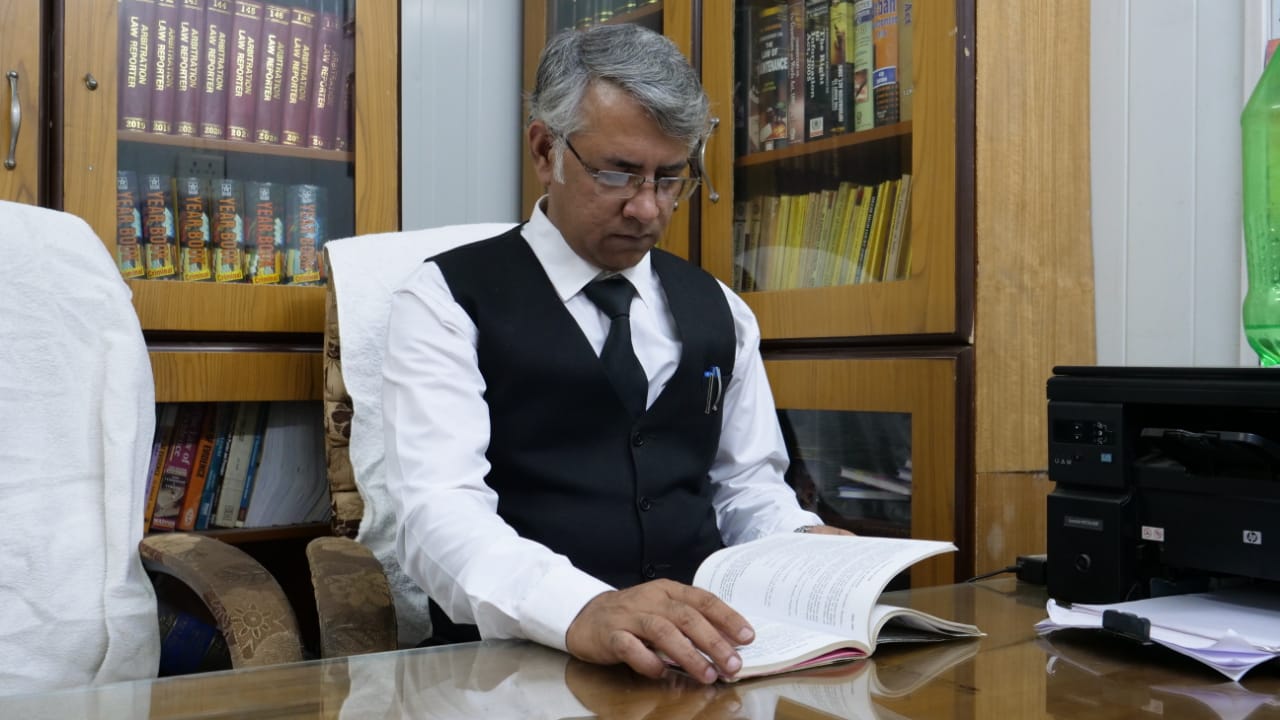How to become one of the Best Criminal Advocate:
- Strong Foundation in Criminal Law
- You shall learn Court Procedures
- You shall study Precedents and Case Law
- You shall gain Practical Experience
- You shall get Involved in Local Courts
- You shall master the Art of Advocacy
- You shall develop a Good Understanding of Evidence
- You shall be Assertive and Confident in the courtroom
- You shall build Strong Relationships with your clients
- You shall understand the needs of your clients
- The best criminal lawyer collaborate with Experts
- The best criminal lawyer stays Ethical and Honest
- The best criminal lawyer stays Updated with Legal Trends and Innovations
- The best criminal advocates incorporate Technology within their practice
- The best criminal lawyer keeps participating in Legal Education
- The best criminal lawyer remains Persistent and Resilient
- The best criminal lawyer learns from every case
- The best criminal lawyer respects Others' Dignity
Even if you disagree with someone, advocating for a cause should never involve disempowering or degrading the dignity of others. Respect and dignity should remain at the core of your advocacy work.
By combining legal expertise, effective communication skills, strategic networking, and a focus on client relationships, you can establish yourself as one of the leading criminal Lawyers in Gurugram. With dedication, ethical practice, and a passion for justice, you’ll be well on your way to becoming the best in your field.
1. The Right to Remain Silent
One of the most fundamental rights during an investigation is the right to remain silent. The right to silence is provided by Article 20(3) of the Indian Constitution which exists to protect individuals from self-incrimination.
Right to Silence means:
- You can refuse to answer questions that may be used against you.
- You have the right to avoid answering questions that are invasive or incriminating.
But while exercising this right, you should remain polite and state calmly that you choose to exercise your right to remain silent until you have your legal counsel.
2. The Right to Legal Representation
Section 41D of the Code of Criminal Procedure (Cr.P.C.), provides that every person arrested has the right to consult a lawyer during interrogation. It’s advisable that you should request the presence of a lawyer before answering any questions.
3. Protection Against Unlawful Detention
Article 22 of the Indian Constitution provides protection to individuals from unlawful detention. Article 22 of the Indian Constitution requires that any person arrested must be informed of the grounds for his/her arrest and he/her shall be presented before a magistrate within 24 hours. This right prevents prolonged detention of a person without proper legal basis and ensures that every arrest is conducted in a lawful manner.
If a person is detained without a clear explanation or he/she is denied the right to contact a family member or legal counsel, this detention may be considered unlawful.
Limitations over police during an Investigation
1. Limitations on Police Interrogation
The police is allowed to ask questions and conduct investigations within the ambits of law. Section 160 of the CrPC restricts the police from summoning women and children below 15 years of age to a police station. When investigation is required from a women or children below 15 years of age then, questioning must be conducted at the individual’s residence, providing an added layer of protection.
2. Searches and Seizures
In certain cases, the police may search your premises if they have a valid warrant. As per Section 165 of the CrPC, a search must be documented and carried out in the presence of witnesses, preferably from the local community. If a search is conducted without a warrant, it may be contested in court unless there is a clear and urgent reason justifying the search.
3. Limited Right to Resist Arrest
It’s important to understand that even if it appears that the arrest is unlawful, you should not resist the arrest, as it could lead to additional charges. In such case instead of resisting the arrest, a better approach is to cooperate initially and then consult a legal professional to challenge the irregularities before the court.
FIR: First Information Report. An FIR (First Information Report) is a document prepared by law enforcement agencies in India and other countries. Detailing the nature of whats crime in question, parties involved and any evidence&witnesses that can provide proof has been included with this FIR. It is the foundation for their police investigation and a key step in the criminal justice process.
The rights of an accused in India are intended to protect individual liberties, ensure a fair trial among many other things. Key rights include:
The right to notification: It is important that the accused be informed of their rights.
Right of Attorney: The accused has the right to hire an attorney at its own expenses. If they are too poor to afford a lawyer the state must provide them one.
Fair trial: Every accused has the right to a fair and public hearing by an independent tribunal.
Right to silence: A person accused of an offence cannot be forced or compelled to testify against themselves and has the right not to say anything when being questioned.
Presumption of innocence: Everyone is innocent until proven guilty.
Right to apply for bail
Right to speedy trial
Protection against double jeopardy
Right to appeal
Depending upon the nature and stage of Bailable Offence in Legal Proceeding, Bail can be granted under various circumstances. Here are some key situations:
Bailable Offences:- If the offense is bailable (as mentioned in First Schedule of Criminal Procedure Code) then there exists an absolute right to bail on arrest by the police. The police may grant bail on arrest and a person has the right to apply for bail before court.
Bail for non-Bailable Offenses: Bail can be granted in case of a bailable offence and that too at the discretion of court. Factors considered include:
Type of offence: If it is not a very serious or non-violent crime
Lack of prior criminal record or history similar offenses
Lack of flight risk and risk of absconding.
Lack of chances of interference in the investigation and temparing of the evidences and threatening of the witnesses.







